Many people may not agree nor understand that the monetary system is the root cause of social problems, such as poverty or climate crisis.
In this article, why the monetary system is the root cause of social problems is explained with some facts.
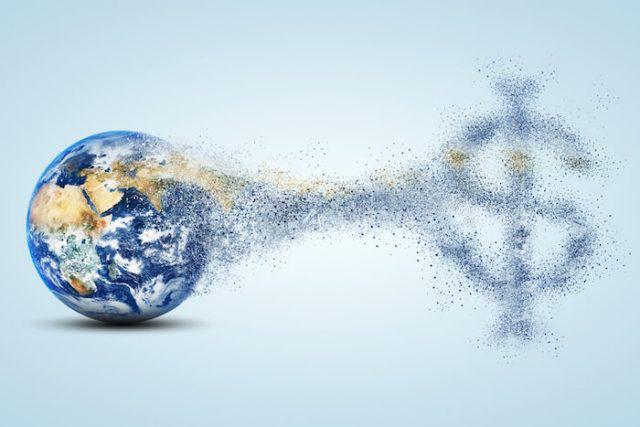
Is the monetary system the root cause of social problems?
I majored in IT at university, studied abroad in England, and have travelled to about 50 countries. After I graduated from school, I did not choose to work in the IT industry. I worked for one of the biggest chain-store companies in the world as an area manager. After that, I had the chance to be involved in establishing a school in Guinea, Africa. Through the experience in Guinea, I realised the potential of IT.
With Freewill, I managed a global IT project spanning 40 countries for a Mega-bank, a $10 million M&A project in India for a travel agency, consulted with a big media company in IT, and planned/designed/managed developing IT systems using blockchain technology.
I moved to Germany in June 2019 and started a business while remaining COO of Freewill. The company I established in Germany is an affiliated company of Freewill.
Japan celebrated the new Reiwa era in May 2019, after the Heisei era that lasted for 30 years.
I was born in the last year of the Showa era (the one before Heisei), so almost all my life has been in Heisei. In these short 30 years, society has seen drastic changes. Phones used to be installed in houses, then mobiles appeared, and now almost everyone has a smartphone and can access the internet anytime, anywhere. The world has become a very convenient place.
On the other hand, there are lots of problems. I believe many people have heard of SDGs (Sustainable Development Goals). SDGs were set by the UN in 2015 for the year 2030 with 17 Goals, such as “No Poverty”, “Zero Hunger”, “Climate Action”, “Life Below Water” and so on. SDGs were pledged to ensure that “no one will be left behind”.
What are the Sustainable Development Goals?
The Sustainable Development Goals (SDGs), otherwise known as the Global Goals, are a universal call to action to end poverty, protect the planet and ensure that all people enjoy peace and prosperity. These 17 Goals build on the successes of the Millennium Development Goals, while including new areas such as climate change, economic inequality, innovation, sustainable consumption, peace and justice, among other priorities. The goals are interconnected – often the key to success on one will involve tackling issues more commonly associated with another.
Currently in the 21st century, 1 out 10 people suffer from extreme poverty, living on less than $2 per day. 1 out of 9 people suffer from hunger. The temperature is continuously increasing and causing extreme weather, and biodiversity and natural resource destruction (it is stated that the number of people suffering from hunger has increased as a result). Regarding life below water, it is stated that fish will become extinct within 30 years because of overfishing to maximize profits.
Although the Goals are categorized into 17, I believe that the root causes are only 2: morality and monetary system. Many people may agree that morality is one of the root causes. However, many people may not agree nor understand how the monetary system could be a root cause.
Let me explain with some facts. I believe that the monetary system is so significant that it will decide whether we humans can survive on this planet or not.
The balance between money and items is unbalanced.
Now, there is almost nobody who has no relation to money. As a matter of fact, most of us are controlled by money. The reason why money is so important is because it can be exchanged for things that people value, such as food, housing or even films.
A long time ago, people traded items for other items. Now people trade items for money, so the world has become a very convenient place. The current monetary system has been here since we were born, so very few people doubt it. However, there are some issues with it.
On one side of the balance there is money, and on the other side are things that people value, such as food, clothing, or services. All things that people value are made from natural resources, including time. Needless to say, natural resources are not infinite (though people who live in rich countries may think they are).
In addition, items lose their value over time. Food goes rotten, and even clothing and housing lose their value as time passes. One good example is products that are discounted just before supermarket closing times.
But what about money? Money can be increased infinitely. It only requires issuing new bank notes or changing numbers in a bank account. In addition, money usually does not lose value. A $100 note is still worth $100 after one year. But if a $100 note is exchanged for food, that food is usually worth $0 after one year.
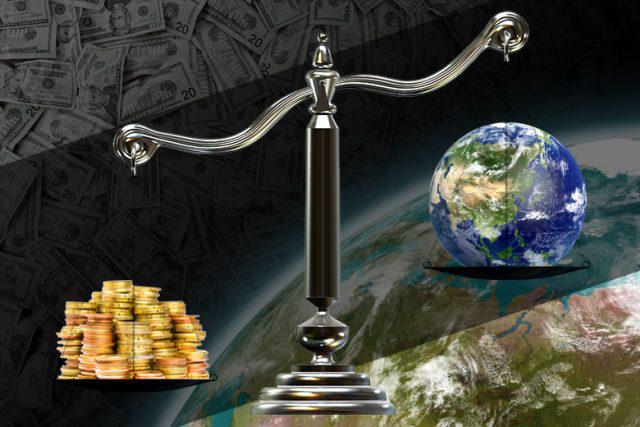
What is sacrificed to balance the unbalanced balance between money and items.
The balance between money and items becomes unbalanced over time. However, in order for them to appear balanced, something is sacrificed and weighed against money.
People die from overwork. The richest 8 people in the world hold the same wealth as the poorest 3.6 billion. There is widespread destruction caused by the climate crisis. What is sacrificed is natural resources and time.
What if money were to lose value over time too? Then, the balance between money and items would be truly balanced, and the world will be better for humans and the environment. It may sound strange, but actually money that loses value has been used before.
Money that loses value over time is the key to prosperity.
A long time ago, Egypt was one of the most developed countries in the world. The value of money in Ancient Egypt depreciated over time. People thought of this as normal because the value of items depreciates over time too.
As there was no point in saving money whose value depreciates, people tried to keep wealth in different forms, such as land development. Thus, people lived with nature and prospered. This prosperity ended with the Roman invasion of Egypt and conversion to a new monetary system in which money does not lose value.
Many cathedrals were built in Medieval Europe (1150-1350) and people still visit them today. In this era, too, the value of money depreciated over time so people exchanged their money for items with long-term value.
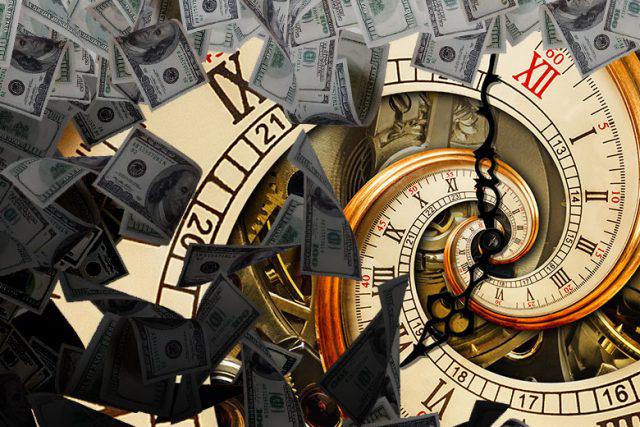
There is one recent example. After the Great Depression in 1929, a town called Wergl in Austria had lots of debt and a high unemployment rate. In order to tackle these issues, the town mayor introduced a monetary system in which the value of money depreciated over time. In simple terms, the value of money depreciated by 1% each month.
There was no point in saving money in this system, so everyone spent their money as soon as possible. Money was circulated like blood in this economy. There was no interest charged for borrowing money, so people borrowed freely and started their own businesses.
After two years, there was no unemployment in the town. People started planting trees with the money they gained. People also started paying taxes in advance, so the amount of tax gained by the town increased 8 times. Eventually the Austrian government prohibited this type of monetary system.
If the monetary system is changed, the world will be better.
These examples show that when the value of money depreciates over time people exchange their money for things that have long-term value, such as forestry, agriculture, education, and renewable energy. This system directs peoples’ consciousness towards long-term and environmentally-friendly pursuits.
On the other hand, a monetary system in which money does not lose value is harmful for both people and the environment. This system directs peoples’ consciousness towards short-term and more profitable pursuits where immoral activities are rewarded and moral activities are shunned.

This is more like coercion than consciousness. The current monetary system forces people to earn more because of interest that increases without limit. If money is borrowed with a 5% interest rate, people are forced to earn what they need to survive plus what they need to repay the interest. Compound interest is so catastrophic that If you borrow $10,000 with a 5% compound interest per year, in 100 years it becomes more than $1,300,000.
People die from overwork. Rich countries used to invade poor countries to take their resources. Nowadays rich countries can take resources using the current monetary system, because it is seen as payment rather than exploitation. More and more animals are becoming extinct. Forests are being cut down, and the sea is becoming barren. Forestry does not fit today’s monetary system because it is more advantageous to cut down trees in exchange for things that are more beneficial in the short-term.
There is a lake called Baikal in Russia, and the people who lived there used to take only as much fish as they needed and shared them with each other. The people lived in prosperity and there was no monetary system. One day, a monetary system was introduced to the people, and then every fish in the lake was taken.
Money stays on the top of the pyramid of things that are beneficial in the long-term.

People have a need for safety that is very strong, next to our physiological needs. Therefore, it is normal for people to try to possess things that are beneficial in the long-term. Generally, things that are beneficial in the long-term are good for both people and the environment. In addition, if the possessions are tangible, one cannot occupy too much and there is no point to do so.
However, under today’s monetary system, in which money does not lose value, money stays on the top of the pyramid of things that are beneficial in the long-term. As a result, people try to become wealthy by possessing money, no matter what else is sacrificed. Under this system, money is just like God.
The current monetary system may have already failed.
Does it still sound strange that money should lose value over time? Is it not stranger and more unnatural that the only thing that does not lose value and can be increased without limit is money? Whether it is strange or not should be judged based on sustainability, rationality, and happiness, not how big a difference it is to the current state.
The system in which money can be increased without limit was introduced very recently. Money used to be exchangeable for gold which is a limited resource. This was changed in 1971. The current monetary system, which seems to have been here for a long time, has actually been used for less than 50 years. In this sense, it is still in an experimental phase and may have already failed.
Recently, many people say “capitalism doesn’t work”, but the system has actually been working quite well. I believe that this is because this system is very similar to nature. The environment chooses the most suitable species to survive. This system is no longer working well, because there is one thing that is not natural – money.
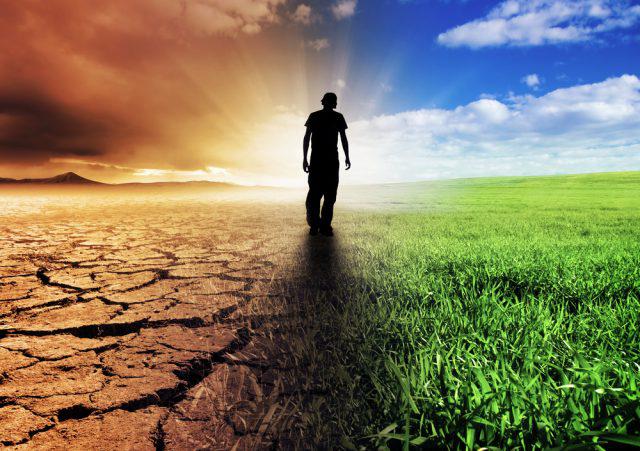
There is still hope. Natural disasters and a lack of resources are out of our control, like the Japan 2011 earthquake. However, the monetary system was created by us so it is within our control to change it.
The challenge in Germany.
The company I established in Germany is called “Valueism” and its vision is to re-define what is truly valuable. The business varies from providing IT-related technology, especially blockchain, to trading items that are good for the environment. Above all, the purpose is to issue money that loses value over time using blockchain technology.
Issuing money whose value depreciates over time may need co-operation with the government. In the town of Wergl in Austria, money that loses value over time was authorised by the town mayor as it was a small town with less than 5,000 people. This system should be supported as it facilitates local production for local consumption, region-specific economic growth, and an increase in taxes paid to the town. The fact that more and more people are becoming concerned with social issues should help this type of system succeed.
The hope that changing people’s consciousness and technology bring.
As mentioned above, money that loses value over time has been successful in some regions but has then been eliminated by the centralised authorities. Will the same thing happen again? I have hope that it will succeed, because the world is becoming more and more de-centralised.

The spread of SNS is one good cause of de-centralisation. If the success of this system spreads, similar activities may spread all over the world, and more people will have doubt in the current monetary system. Changing people’s consciousness is the most important thing.
In addition, de-centralisation is compatible with blockchain technology, so it enables the introduction of systems that are more efficient and effective. Blockchain technology records all money circulation too. Therefore, it clarifies how tax is spent and prevents money laundering.
The business development of Freewill
Freewill, which I am remaining COO of, the name expresses the vision that people within the company may follow their own dreams. What is written here is my dream.
Freewill develops IT systems with blockchain technology for its customers. We also develop an in-house IT service called “SPIN (Social Parents Invest and Nature)”, in which people can nurture talented children in developing countries. In this IT service, users can trace money circulation using blockchain.
The climate crisis is the most catastrophic problem that the human race and the planet have ever confronted.
If we scale the 4.6 billion years of earth’s history to 46 years, humans have been here for 3 hours and we have destroyed more than half of the forests within the last 1 minute (equivalent to 100-200 years). This cannot be sustainable.
In the last 1 minute, the temperature has risen by nearly 1 degree. There is more damage caused by natural disasters. They may be called human disasters rather than natural disasters. The climate crisis is the most catastrophic problem that the human race and the planet have ever confronted.
It is time for us to change.
Our generation may be the first generation to be impacted by the climate crisis and the last generation to stop it. What kind of world should we leave to our children and grandchildren?
School strikes for climate, started by 15-year old Greta Thunberg, are held in more than 100 countries. Climate Emergency is declared by more and more countries each day. What if the monetary system, which appears irrelevant to the climate crisis, is one of the biggest root causes? What if we can contribute to solving the climate crisis by changing the monetary system?
The change is coming whether we like it or not. It is time for us to change.
I believe that the monetary system is so significant that it will decide whether we humans can survive on this planet or not.
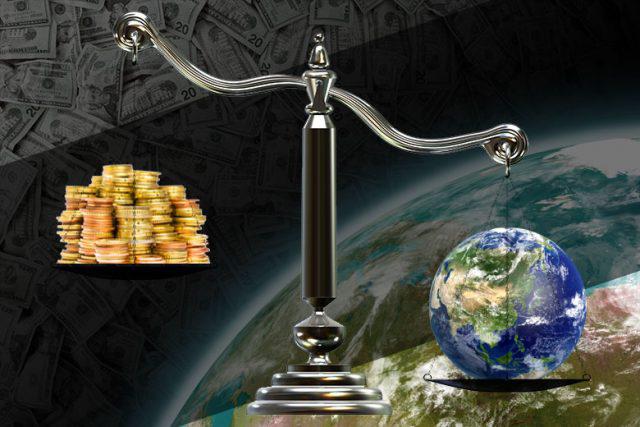


 はじめての仮想通貨
はじめての仮想通貨 TOP
TOP 新着一覧
新着一覧 チャート
チャート 学習-運用
学習-運用 WebX
WebX


